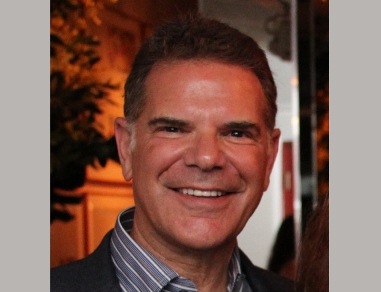On the Near-Term Horizon: Unimagined Relationships among Marketers, Media & Consumers

Originally published November 2012
The Internet itself is more than an invention or innovation; it is a transformational catalyst that is differentiating the 21st Century from all of history before it.
On the near-term horizon are ubiquitous WiFi…cloud storage with unlimited memory…4G and Ultra-5G connectivity with exponentially increased Internet speed… mobile devices that are elegant extensions of home communications centers…organization of content from millions of sources into personalized and curated resource centers...collaboration, communication and even voting through social networks…handheld remote controls and keyboards replaced by motion and voice detection…wireless global communications and instant translation that further disrupt traditional boundaries and bring the world together into new social and political systems…chips literally being embedded in our bodies for control, monitoring, tracking and communications…our brains learning to discern, process and communicate digital signals…our bodies becoming our own personal energy sources…medical advances that could extend the lives of many for decades. The list of technological advances that are already developed or in development could go on and on. Technological advances are a day-to-day reality with which the current generation of college students has grown up and which they have come not only to expect, but to rely on.
"Today, we anticipate continuous technical progress and the social repercussions that follow. But the future will be far more surprising than most people realize, because few observers have truly internalized the implications that the rate of change itself is accelerating."
~ Ray Kurzweil
Inventor
"The early web was built around content — many websites of content connected to one another…But this is quickly being replaced with a web where content is broken down and aggregated in different ways for different people. It’s a more personalized, and unique experience based on knowing who we are, who our friends are, and what our friends have liked or done. With the emergence of mobile, platforms and APIs across the web, content is now being disaggregated, broken down into its smallest components, and being re-aggregated and reformatted in many other places."
~ Paul Adams
Facebook
Content, including advertising, is just particles of communications to be discovered and shared, and what you discover and share will help define who you are and what you’re interested in having others share with you. Today hundreds of companies are developing programs to help individuals and organizations in recognizing, curating, storing and sharing the millions of fractional pieces of content that are floating in cyberspace.
Over the next two decades, new innovative tactics will evolve that truly exploit the potential of the Internet for marketers, ad agencies and media companies, as well as all organizations, institutions, educators, politicians, religious leaders and families. These tactics will move the ad business in a different direction. They will focus on creative strategies tuned to online and mobile communications and Internet-based technologies rather than strategies designed for traditional media and especially for mass marketing.
It’s a direction that will be more social and interactive, more engaging, more emotional, and more focused on building connections between the advertising messages and the content environment in which they appear. Marketing campaigns will depend on converting data and databases to insights and knowledge that can be used for targeting the right messages to the most receptive and potentially responsive audiences.
Advertising will travel from friend to friend as a part of recommendation engines, and advertising will be organized, curated and shared in the same way YouTube videos or Pandora music discoveries are today. TED.com has created the "Ads Worth Spreading" global initiative to identify and distribute messages that the curators at TED believe are worthy of attention for their creativity, message, relevance, controversy, etc. GE has launched its FocusForwardFilms.com initiative to underwrite and distribute the passion projects of both professional and amateur documentary filmmakers, advancing a message of global advances in mankind’s commitment to innovation that are enhancing humanity. These films are available at www.focusforwardfilms.com as well as YouTube, Vimeo and other discovery engines.
Advertising will have direct commerce options embedded and activated instantly or when the consumer appears at a point of sale where the offer can be redeemed. Advertising will translate smoothly across multiple communications platforms. Advertising will become more global as marketers recognize the potential of Internet communications, yet it will also serve consumers where they live, shop and travel. New digital strategies will displace local Pennysavers and Val-Pak coupon mailers. Local blog sites that serve their communities will expand and consolidate. These sites and apps will eventually dominate the market for consumer access to local information, services, merchant and restaurant recommendations and special offers. Completely new and unimagined relationships among marketers, media and consumers will evolve, altering the fundamental nature of advertising and communications.
This report is excerpted in part from Jack Myers’ new book, Hooked Up: A New Generation’s Surprising Take on Sex, Politics and Saving the World.
Disclosure: Jack Myers is a producer of GE Focus Forward Films.


